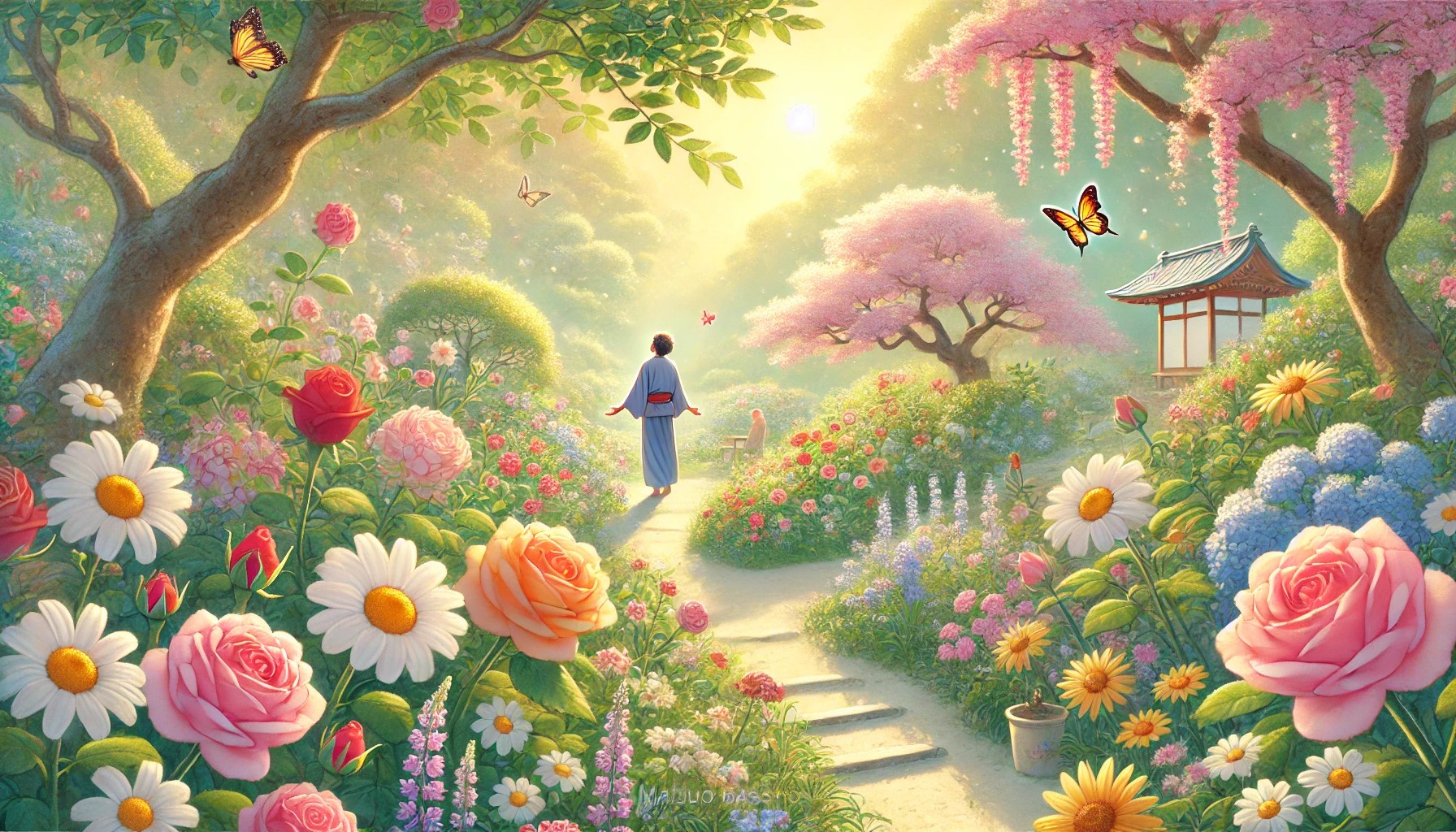🌺 “Smell the flowers. It’s a simple act that brings immense joy.”
Picture description: Painting of Matsuo Bashō
Source: https://commons.wikimedia.org/wiki/Matsuo_Bash%C5%8D#/media/File:Basho_by_Buson.jpg
Author: Yosa Buson (1716 –1783)
Matsuo Bashō, the renowned Japanese poet, finds profound joy in the simple beauty of nature. Today, take a moment to smell the flowers. Let their delicate fragrance fill your senses and remind you of the simple, yet profound, pleasures that life offers. 🌼🌸
Engage with the world around you by appreciating these small wonders. Whether it’s in a garden, a park, or a single bloom on your desk, let the act of smelling the flowers bring a sense of calm and joy to your day. Embrace this moment of peace and let it fill your heart with gratitude for the beauty that surrounds us. 🌿💐
Matsuo Bashō, born Matsuo Kinsaku on November 28, 1644, in Ueno, Iga Province (present-day Mie Prefecture, Japan), is widely regarded as one of the greatest haiku poets of the Edo period. Bashō’s work is celebrated for its simplicity, depth, and connection to nature, which has made a lasting impact on Japanese literature and poetry.
Bashō’s early life was marked by his samurai upbringing, but he eventually turned away from the warrior’s path to pursue a life of poetry and literature. He studied under the tutelage of several prominent poets before finding his own voice. In the late 1660s, Bashō moved to Edo (modern-day Tokyo), where he gained recognition for his haikai no renga (linked-verse poetry).
In the 1680s, Bashō embarked on a series of journeys throughout Japan, which greatly influenced his poetry. His travel experiences are beautifully captured in his famous travel diaries, such as “The Narrow Road to the Deep North” (Oku no Hosomichi). These works blend prose and haiku to convey his reflections on nature, life, and the human condition.
Bashō’s haiku often focused on the natural world, emphasizing the beauty of fleeting moments and the interconnectedness of all things. His minimalist style and deep appreciation for nature have made his poems timeless. Some of his most famous haiku, like “An old pond / A frog jumps in / The sound of water,” capture the essence of his poetic philosophy.
Throughout his life, Bashō sought to live simply and in harmony with nature, embodying the principles of Zen Buddhism. His work continues to be studied and admired for its profound insights and elegant simplicity.
Matsuo Bashō passed away on November 28, 1694, but his legacy endures, inspiring poets and readers around the world with his timeless haiku and travel writings.
